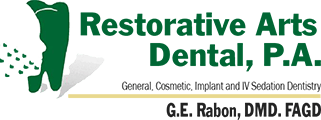How to reduce the risk of oral cancer through lifestyle changes?
Oral cancer affects over 50,000 Americans annually. Adjusting certain lifestyle factors can decrease your risk of developing this disease. You can reduce susceptibility by avoiding major risk factors, getting cancer screenings, and making healthy choices. Here are tips to minimize your oral cancer risk through lifestyle changes.
Understand Your Oral Cancer Risk Factors
Oral cancer risk increases most notably with:
- Tobacco use – cigarettes, e-cigarettes, smokeless tobacco
- Heavy alcohol consumption
- HPV infection – the sexually transmitted human papillomavirus
Sun exposure is also a contributor, especially on the lips. Age is also a factor, as oral cancer becomes more prevalent over age 40.
Knowing your unique risk helps you make smart prevention decisions. Discuss candidly with your dentist about your lifestyle and family history to assess susceptibility.
Get an Oral Cancer Screening
Early detection is critical, as oral cancer has a high survival rate when found early. Take advantage of professional screenings during dental checkups. Your dentist visually examines all soft tissues of the mouth for abnormalities.
For those at elevated risk, an oral cancer screening near you by a dentist provides peace of mind. Specialized tests like VELscope also identify early cellular changes. Screening every 6-12 months is advisable if you have major risk factors.
Stop All Tobacco Use
Tobacco in any form significantly raises oral cancer risk. Quit smoking or chewing tobacco to avoid this preventable risk. If you currently use tobacco, set a quit date and develop a cessation plan. Consult with your doctor about using nicotine replacement products or receiving prescriptions to help manage cravings. Additionally, it is vital to live a tobacco-free lifestyle by avoiding secondhand smoke. Be supportive of friends and loved ones as they try to quit smoking.
Drink Alcohol in Moderation
Moderate your alcohol intake to no more than one drink per day for women and two for men. Abstaining completely further reduces oral cancer risk.
When you choose to drink, avoid binge drinking and don’t drink every day. Also, refrain from using tobacco and alcohol together – combining the two compounds risks beyond either alone.
Practice Safe Sex and Get the HPV Vaccine
Since HPV can cause oral cancers, practicing safe sex and vaccination protects health. Use protection, limit partners, and undergo regular STI testing.
The HPV vaccine is suggested for all preteens and adults under age 45. The vaccine prevents contracting cancer-associated HPV strains that could jeopardize your oral health.
Eat a Balanced, Nutritious Diet
I am eating for wellness benefits the entire body, including the mouth. Emphasize fruits, vegetables, lean proteins, whole grains, and healthy fats. Limit processed and sugary foods that lack protective nutrients.
Foods containing antioxidants help prevent damage leading to cancer. Load up on green tea, berries, carrots, tomatoes, and citrus fruits. Your dentist office in Sumter, SC, can provide nutritional guidance to reduce cancer susceptibility.
Exercise Regularly
Incorporate 150 minutes of moderate exercise weekly to control weight, lower stress, and reduce cancer risk.
Even light walking counts toward your total. Try to move daily and sit less. If new to exercise, start slow and work up to 30-minute sessions most days.
Protect Yourself from the Sun
To shield against lip cancers:
- Apply broad-spectrum SPF 30+ lip balm before sun exposure.
- Reapply every two hours if remaining outdoors.
- Wear wide-brim hats when possible for shade.
Avoid direct sunlight during peak intensity hours between 10 a.m. and 4 p.m. Be extra diligent about sun protection if taking medications that increase photosensitivity.
Manage Stress Levels
Chronic stress weakens the immune system, increasing susceptibility to illness and disease. Make time for relaxation daily through yoga, deep breathing, meditation, or enjoyable hobbies. Don’t let life’s pressures overwhelm health-promoting self-care.
Counseling provides help for managing major stressors like grief, anxiety, trauma, and life changes beyond your control. Seek support before struggles impact well-being.
The best approach combines avoiding risks while integrating healthy behaviors. Take charge of your oral cancer risk through lifestyle steps. Speak with your dentist in 29150 to personalize your prevention plan.

